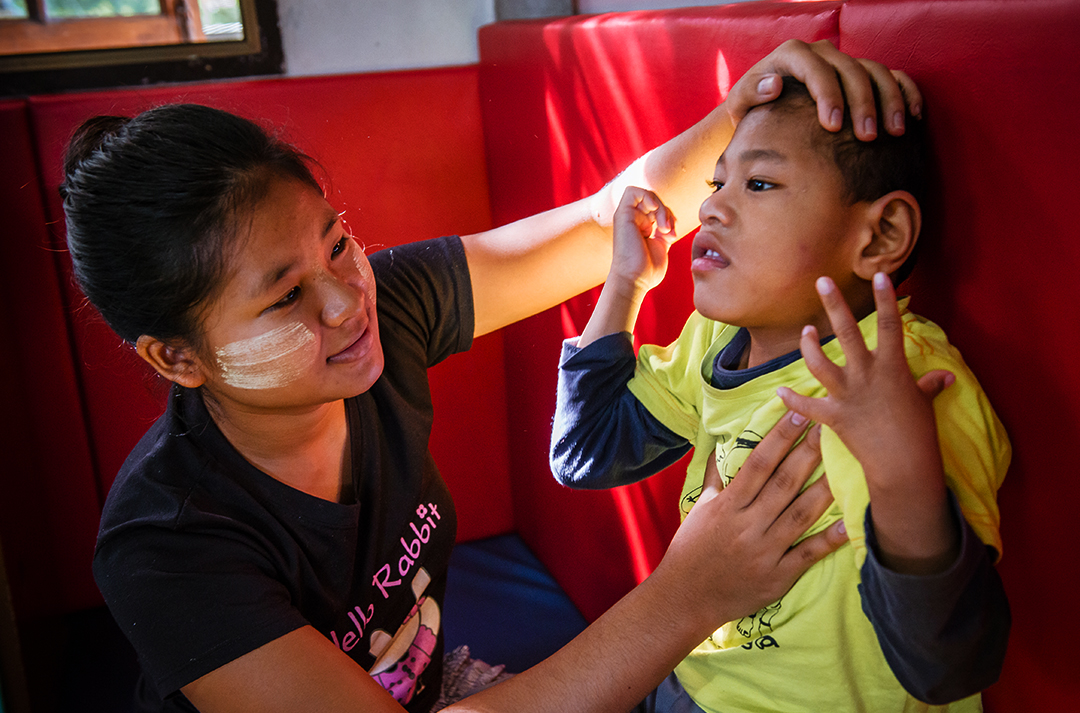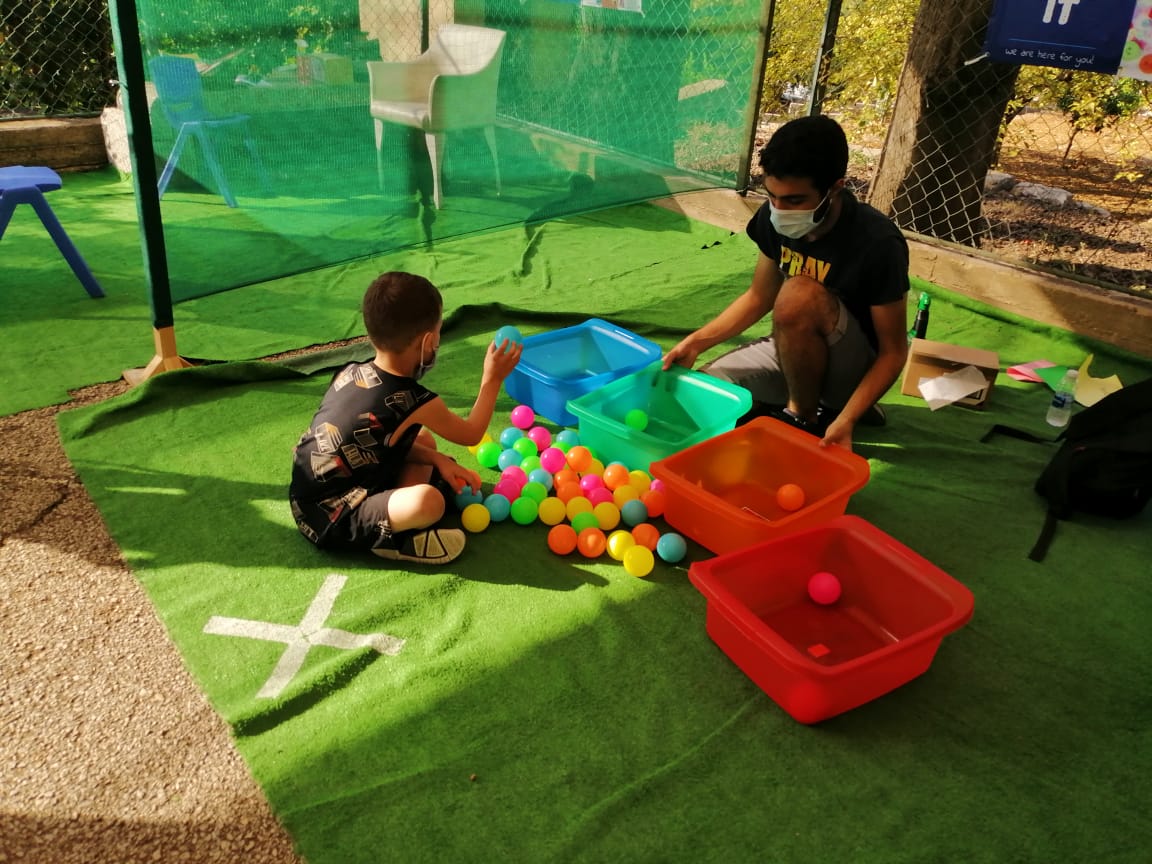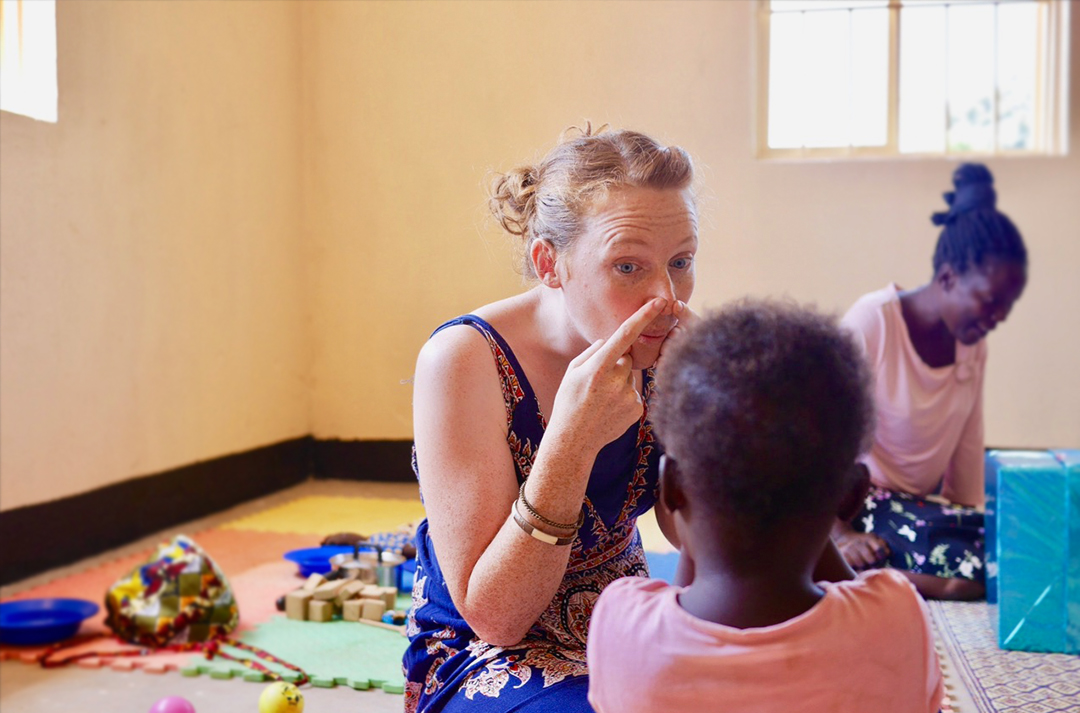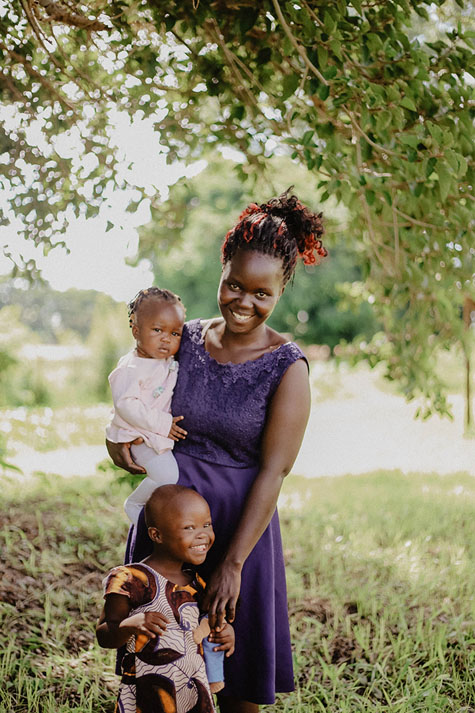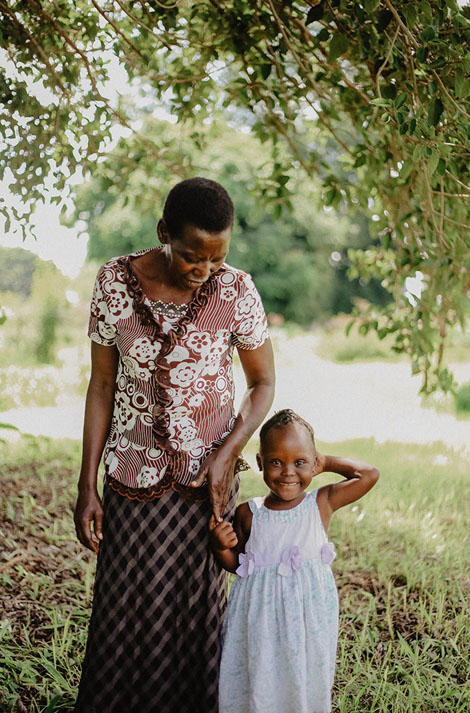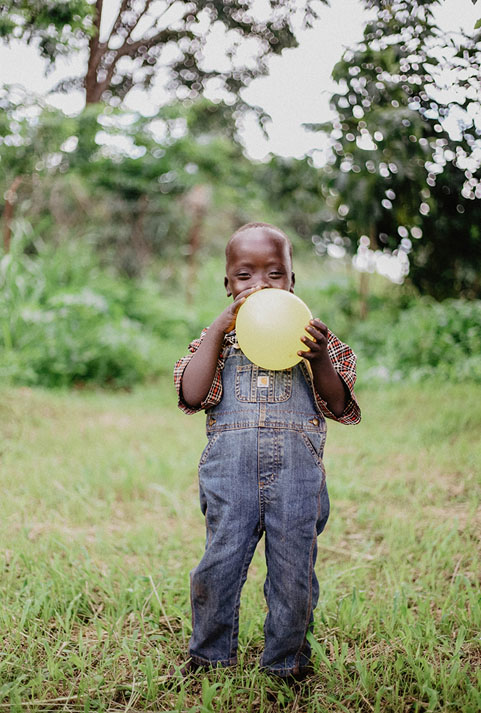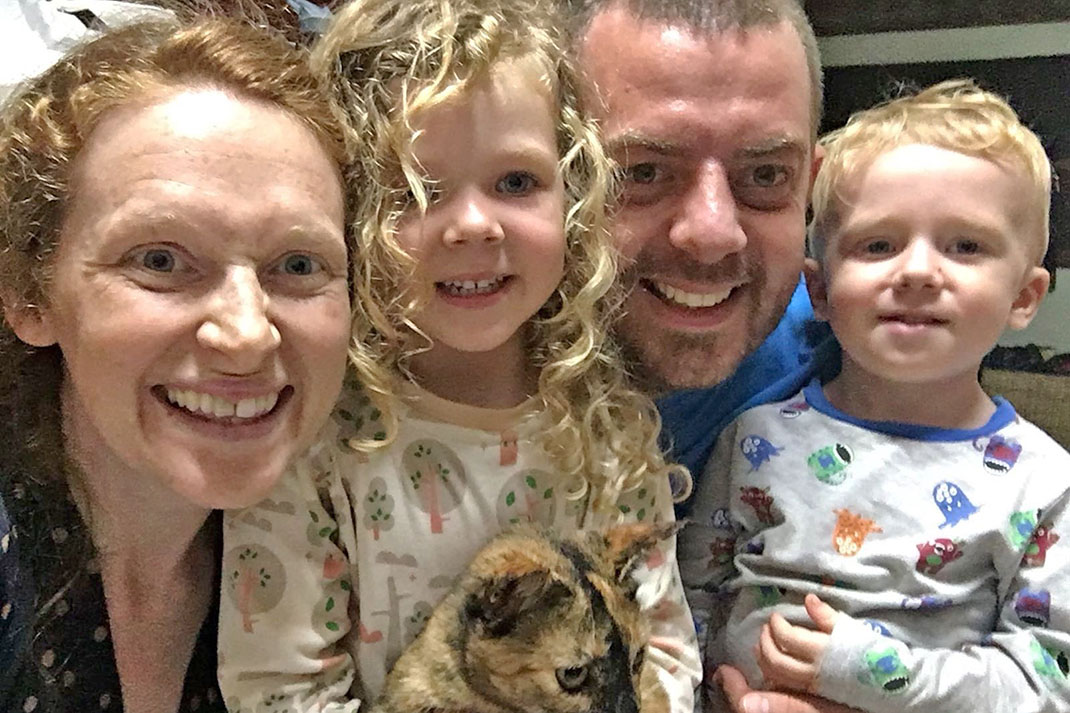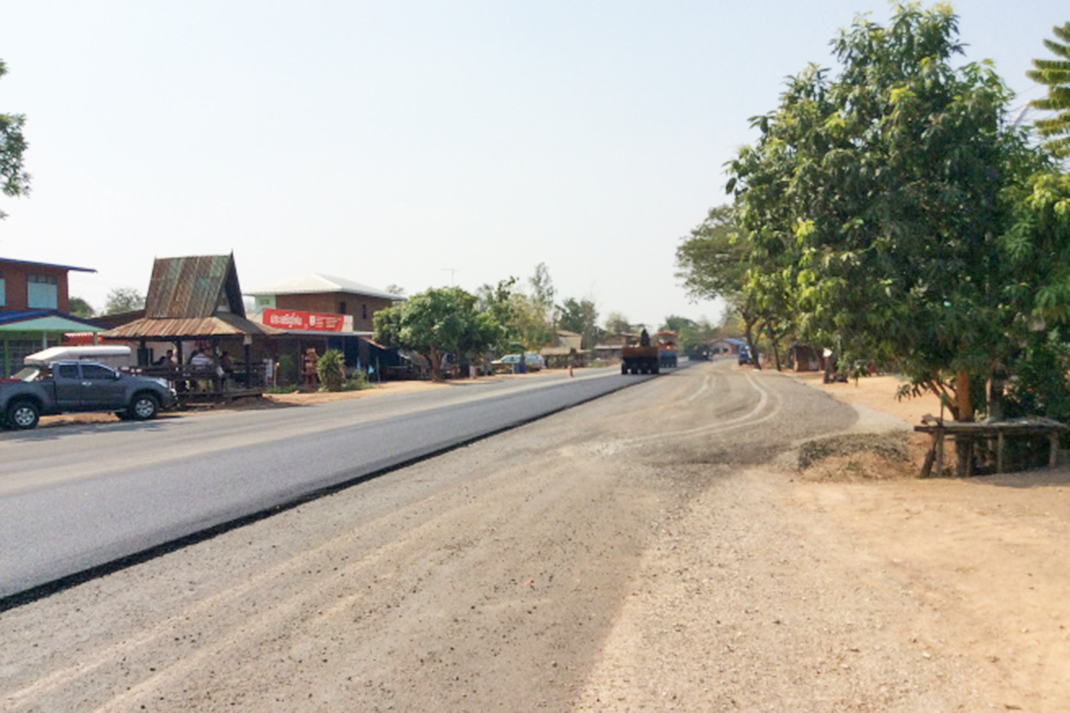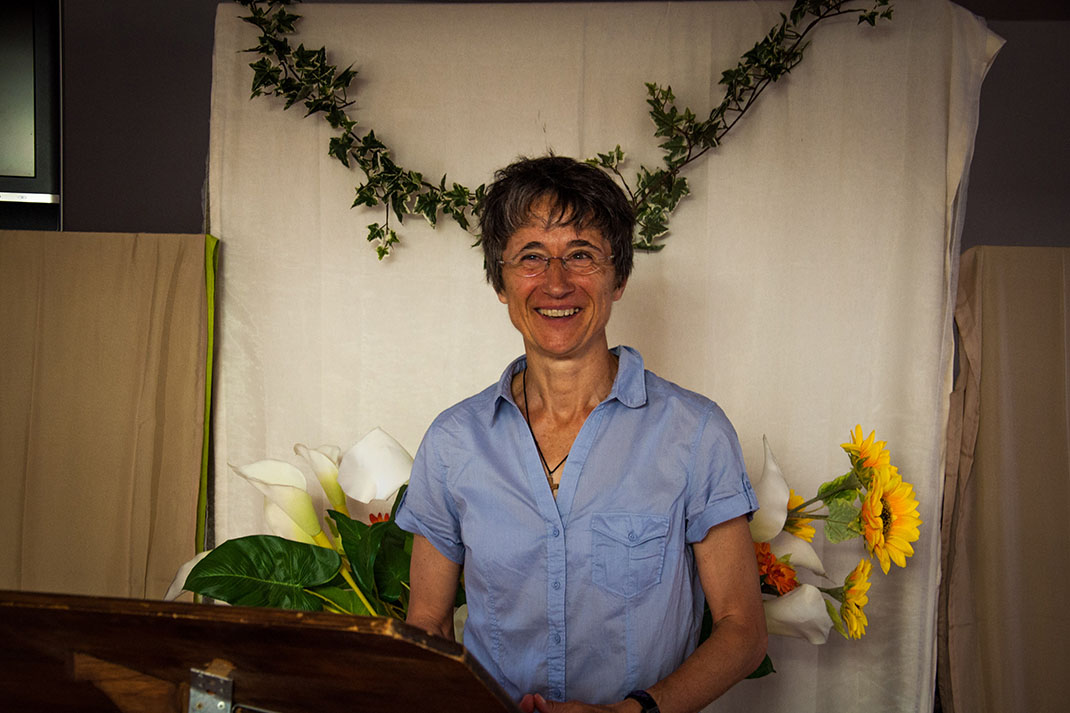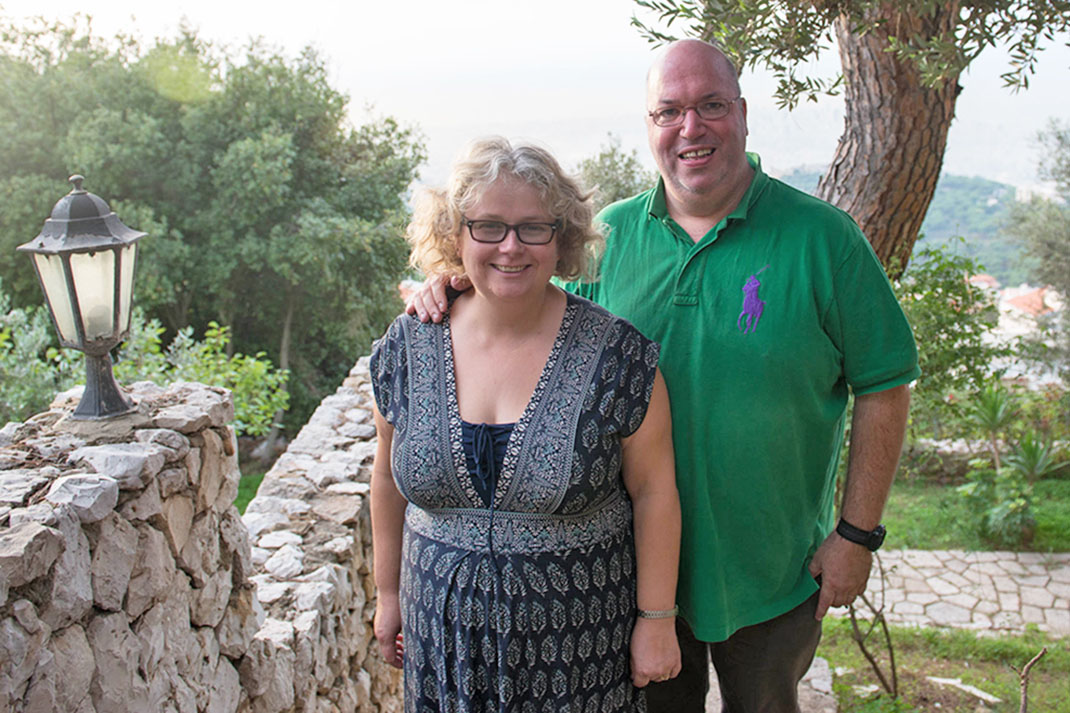Nothing’s stopped
Nothing’s stopped
A Q&A from Uganda
For over a decade, many of you have been faithfully praying and supporting BMS World Mission workers Joe and Lois Ovenden and Linda and Tim Darby. Now their time in Uganda has come to a close, we caught up with them about their reflections on serving with BMS– and the exciting plans for the BMS-supported team still there!
Hi Tim and Linda, Joe and Lois, it’s great to chat! We’d love to know: how did you think God was going to use you out in Uganda and how were you surprised by how God did end up using you there?
Linda Darby: I thought I would be in an office and managing the staff that were already there but actually God used my legal skills within the field, networking with local government, doing advocacy work and starting new projects. I didn’t foresee the child protection work either.
Tim Darby: I went with a completely blank slate. I started off doing a baseline assessment [for clean water provision in Gulu] and looking at rural areas, seeing what the situation was and how it could be improved. And then the borehole projects came out from that. It was quite freeing knowing that I could, within reason, do what I felt needed to be done based on the research.
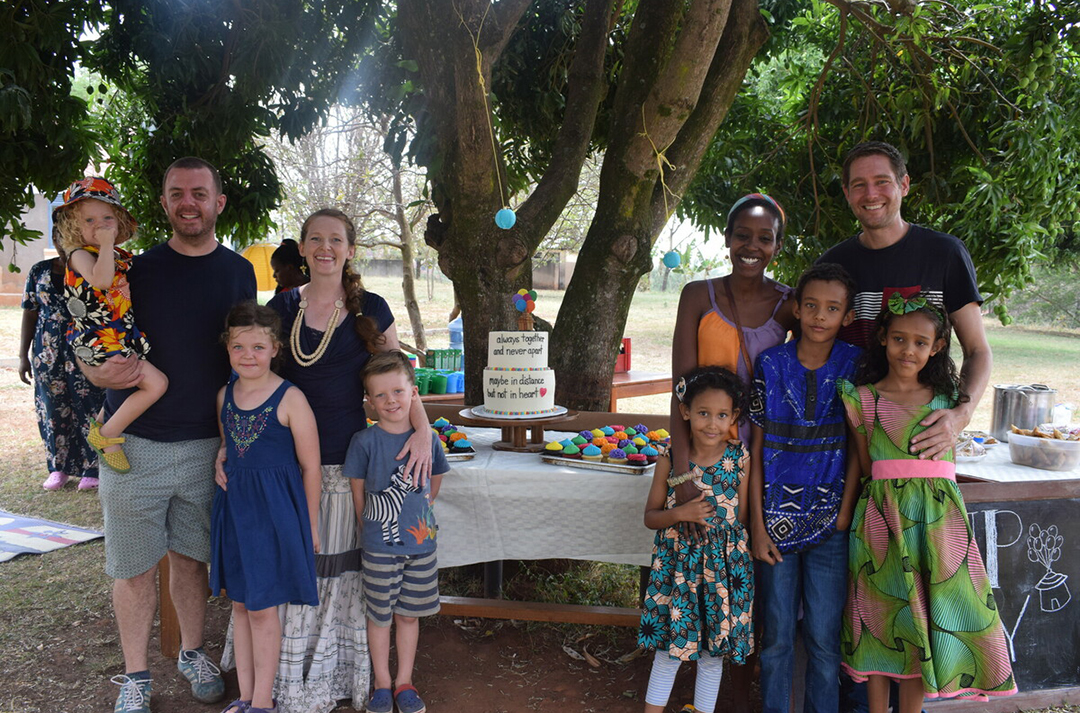
Lois and Joe Ovenden: I think one of the things we were surprised by was that being a safe space for other overseas workers felt like an important part of what God had asked us to do in Uganda too. That is something we ended up doing a lot of, being a community hub for long stretches of time. And because of the amount of support that we had from BMS, that gave us the capacity to be a support for other people.
Is there an encouraging moment that stands out to you from your time in Uganda?
Linda: I was really encouraged by the development within the team. Like seeing Jolly, who is the [BMS-supported] legal manager, from the beginning of her first year as a student and seeing her confidence, spirituality, and her heart and passion for the community around her grow. That was so encouraging to walk with her.
Tim: Yes, I think I was more encouraged by people than by the actual projects themselves. When you develop people’s skills then the projects kind of follow much more naturally.
Lois: One that comes to mind was being invited to the Gulu Down Syndrome support group meeting. That I was being invited to it! I wasn’t organising it, I didn’t set it up. They’re running it, these mums, and dads and also an uncle now, which is really encouraging. That I was now the invited guest as opposed to me trying to get everybody to come, that was super encouraging.
Joe: I think just seeing the team that we’ve built and the people we’ve had the privilege of working with – and thinking, you’re really sound, really functional and have lots of different skills and great working relationships. Knowing that all the ingredients are there for the work to be successful, and that it’s the right thing for us to be moving out the way.
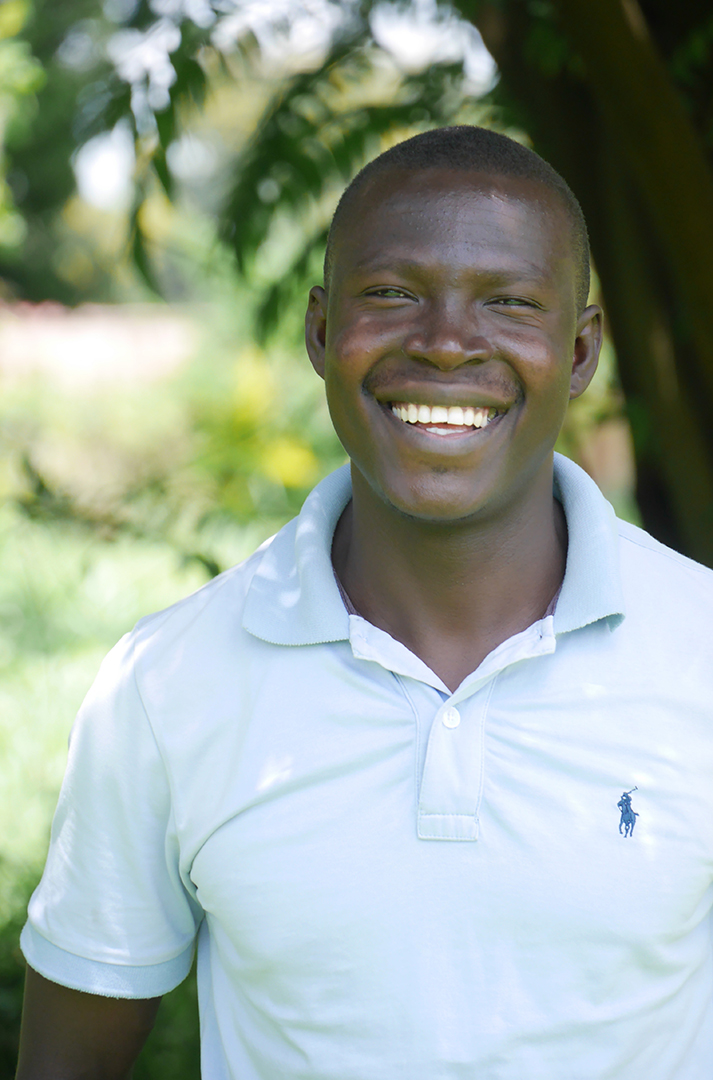
How have you seen a passion for mission lived out in your colleagues?
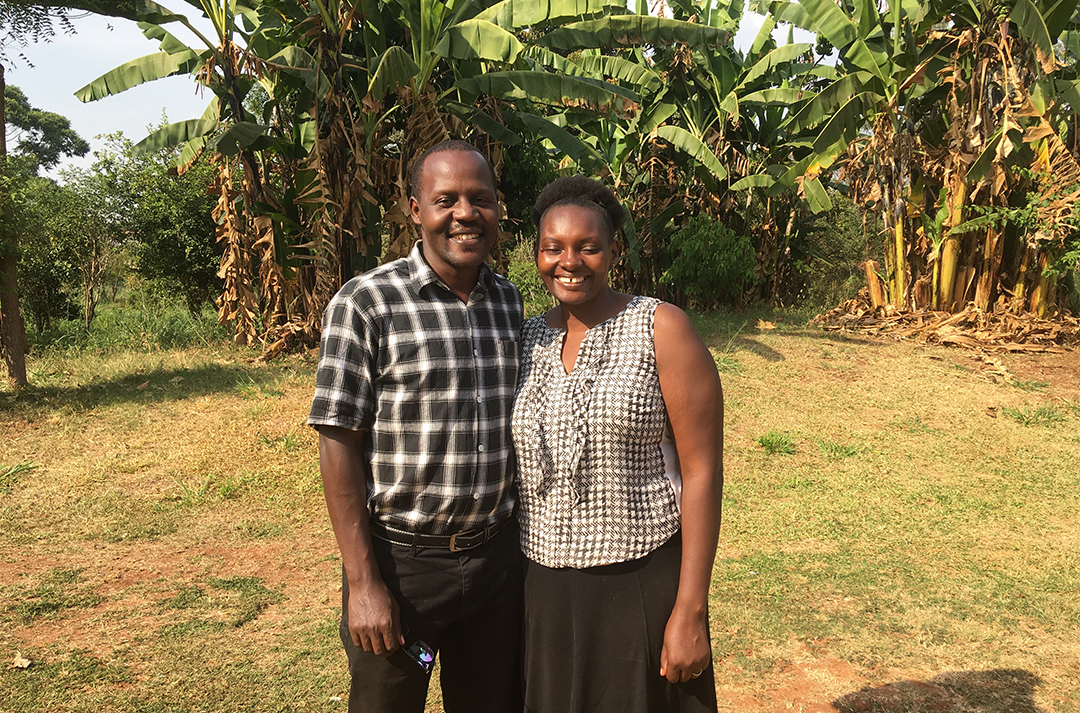
Linda: When interviewing for all of the jobs [at BMS partner Ugandan Lawyer’s Christian Fellowship], they put a lot of emphasis on spirituality and character, and seeing the team that is in Uganda right now, they’re strong characters. Strong characters who live their faith out every day, who have a heart for the vulnerable and marginalised members in the community.
Lois: The generosity of people like [BMS-supported workers] Jimmy and Phiona. The church fasts for January, so you eat in the evening at around 6 pm. And they would feed the church every night at their home. They live by faith, really, their whole lives just seem like they give endlessly of themselves and their time. They’re just an open door all the time, and they have a wider sense of family and community. Our Ugandan colleagues have got an amazing, intertwined life that is just being Jesus to people all the time.
What would you say to UK churches about the work that’s still going on in Uganda?
Tim: I think we’re excited that nothing’s stopped. Not a single project that either of us or the Ovendens started is ending now that we’re leaving. All of the work is still going on, it’s just being done by other people and they still need support and they still need prayer just as much as we did.
Linda: I think we would really encourage UK churches to continue both financially supporting the work in Uganda, but praying too. I believe that the success of the projects has been through their prayer. Just prayer for the team in Uganda, how the community perceives them, that they will be a light and that they will continue working the way they have been.
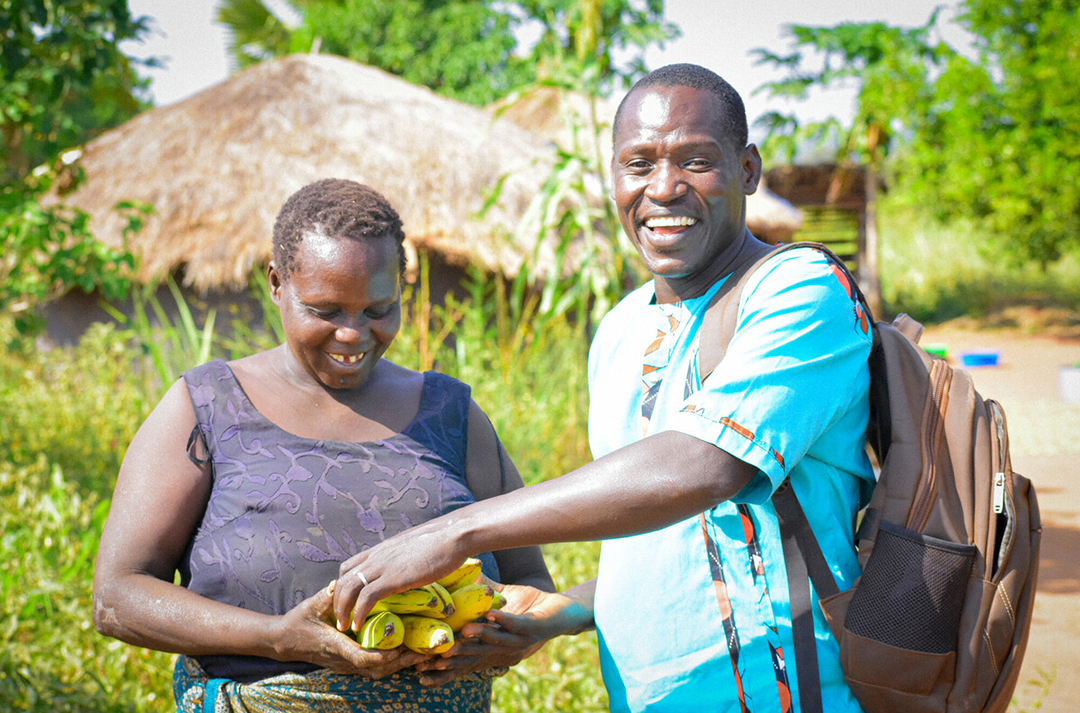
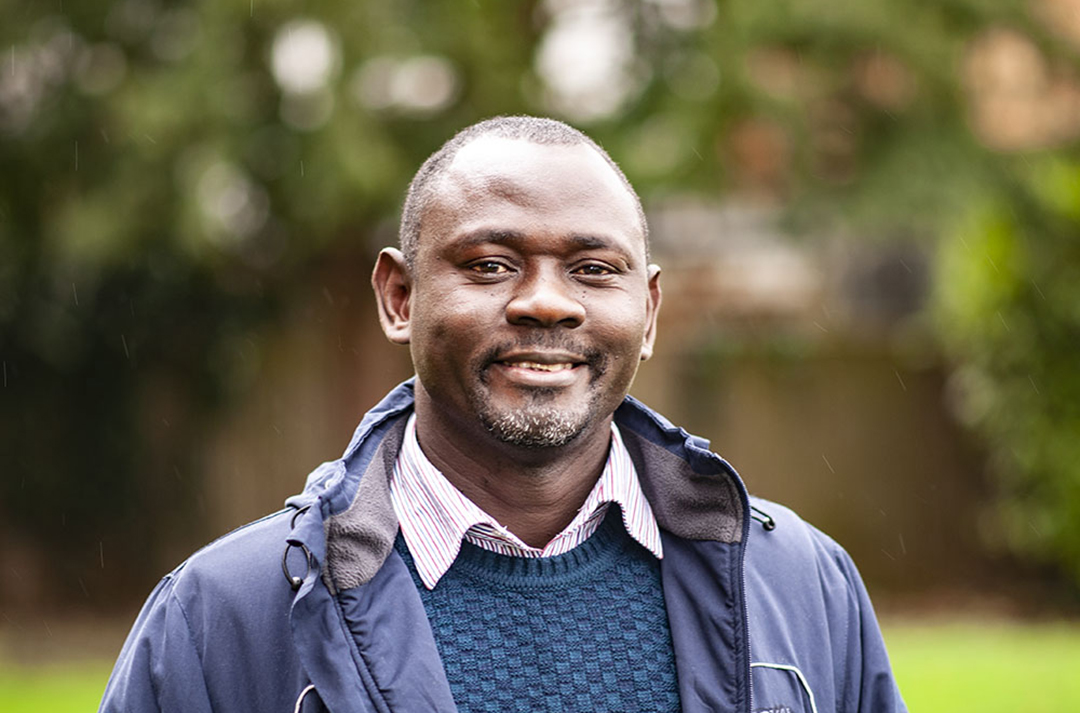
Lois and Joe: Philippians 1: 6 talks about taking work to completion. Our part here is completed but the work isn’t finishing. We’ve just done our leg of the relay. And the baton’s already handed on and they’re already running! We’d love to encourage people to support Benon and Genesis [and our other Ugandan colleagues] and to see that work flourish. All of the strands of the work are carrying on and still need support and prayer and finances, but they’re carrying on with our Ugandan colleagues taking the lead and that’s really encouraging.
You must have been shown some amazing displays of support from UK Christians, so if you had any last messages, what would you want to say?
Linda and Tim: We would say thank you and that we are truly grateful. We’ve had such encouragement, emails, messages. When we visited churches we were sometimes totally blown away by how many people have been praying faithfully about every stage, from us arriving to us leaving. We’re just very, very grateful for their generosity, their time, their effort in reading our prayer letters and in keeping in contact with us.
Lois and Joe: We can’t really overemphasize how grateful we are for the faithfulness of people’s support. It is an amazing privilege to have people who you don’t know genuinely pray for you regularly. It never really ceased to amaze us how faithful people are in prayer and support and financial giving. They’re just incredible. So we just want to thank people for that, really, genuinely from the bottom of our hearts and ask that they will continue to pray for the work and for our colleagues and for BMS.
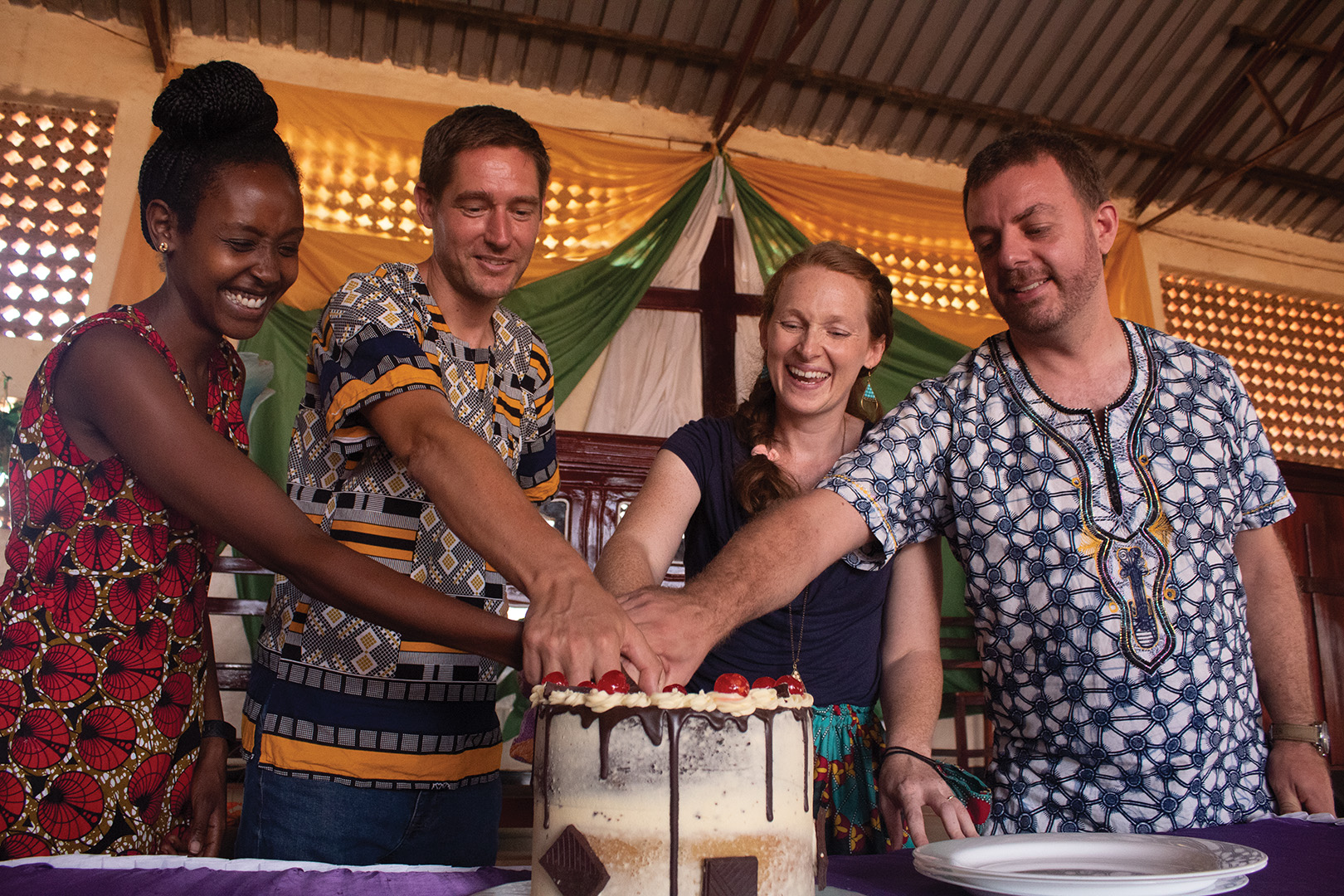
Thank you so much for supporting the Darbys and the Ovendens during their time serving with BMS. If you want to continue supporting and praying for BMS-supported work in Uganda, why not start by signing up to support BMS workers Benon Kayanja and Genesis Acaye as a 24:7 Partner!


